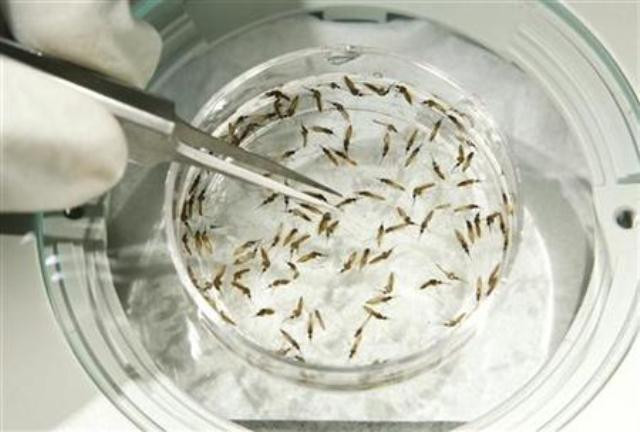These 'top ten' parasites in your food can kill you: UN
Food borne parasites affect millions around the world, which can then lead to fatal diseases.

The top 10 food borne parasites affect millions around the world and can infect an individual’s organs, which can then lead to several fatal diseases such as epilepsy, anaphylactic shock and amoebic dysentery.
The organisation aims at dealing with, and if possible eradicating the top 10 parasites which are most harmful to humans.
Taenia solium tops the list of the most harmful food borne parasite. It is a parasite found in pork and more prevalent in countries where pork is commonly eaten.
Next are Echinococcus granulosus and Echinococcus multilocularis, they are a type of tapeworm and both are commonly hosted by dogs or even cattle animals.
Toxoplasma gondii, is most commonly hosted in meat from small mammals that are able to acquire nutrients from plant-based food, such as goat, sheeps or camels. The virus can also be hosted by pork or beef meat, more specifically in red meat and organs.
Cryptosporidium can cause gastrointestinal illness with diarrhoea in humans and is most commonly prevalent in fresh produce, fruit juice, milk.
Entamoeba histolytica exists in the host and in fresh loose feces; it can survive outside the host in water, in soils, and on foods, especially under moist conditions on the latter. The parasite can be found in freshly produced products.
Trichinella spiralis is a pork worm. It is usually found in undercooked pork products and is responsible for the disease trichinosis.
Opisthorchiidae derives from a family of flat worms and is found in freshwater fish and is known for causing clonorchiasis disease.
Ascaris spp. are small intestinal roundworm, Their eggs are deposited in feces and soil. It is typically found in freshly produced food items.
Trypanosoma cruzi is a parasite hosted by fresh juices. Transmission occurs when a triatomine bug deposits its feces on the host's skin surface and subsequently bites it.
The top ten are:
1. Taenia solium (pork tapeworm): In pork
2. Echinococcus granulosus (hydatid worm or dog tapeworm): In fresh produce
3. Echinococcus multilocularis (a type of tapeworm): In fresh produce
4. Toxoplasma gondii (protozoa): In meat from small ruminants, pork, beef, game meat (red meat and organs)
5. Cryptosporidium spp.(protozoa): In fresh produce, fruit juice, milk
6. Entamoeba histolytica (protozoa): In fresh produce
7. Trichinella spiralis (pork worm): In pork
8. Opisthorchiidae (family of flatworms): In freshwater fish
9. Ascaris spp. (small intestinal roundworms): In fresh produce
10. Trypanosoma cruzi (protozoa): In fruit juices
The report suggests, more than 2,500 people in Europe are affected by food borne parasitic diseases. However there is no exact data available for Asia and Africa.
Minimising food risks
The aim of the regulatory body is to carve out new recommendations in order to minimise the health consequences caused by food parasites.
WHO has already provided recommendations to prevent diseases caused by food parasites.
For instance, farmers are asked to use organic fertilisers and make sure all fecal matter is adequately removed.
For users of food and water commodities, it is recommended to closely monitor water sanitisation and do not leave meat undercooked.
"Obviously this top ten is a more general, global perspective and does not necessarily reflect parasite rankings at a national level where each country may have more precise information," said Renata Clarke, head of food safety and quality at FAO.
"But considering the problems they cause, these parasites do not get the attention they deserve. We hope that by releasing a top ten ranking we can increase awareness among policy makers, the media and the general public about this major public health issue," she added.



















COMMENTS
Comments are moderated and generally will be posted if they are on-topic and not abusive.
For more information, please see our Comments FAQ